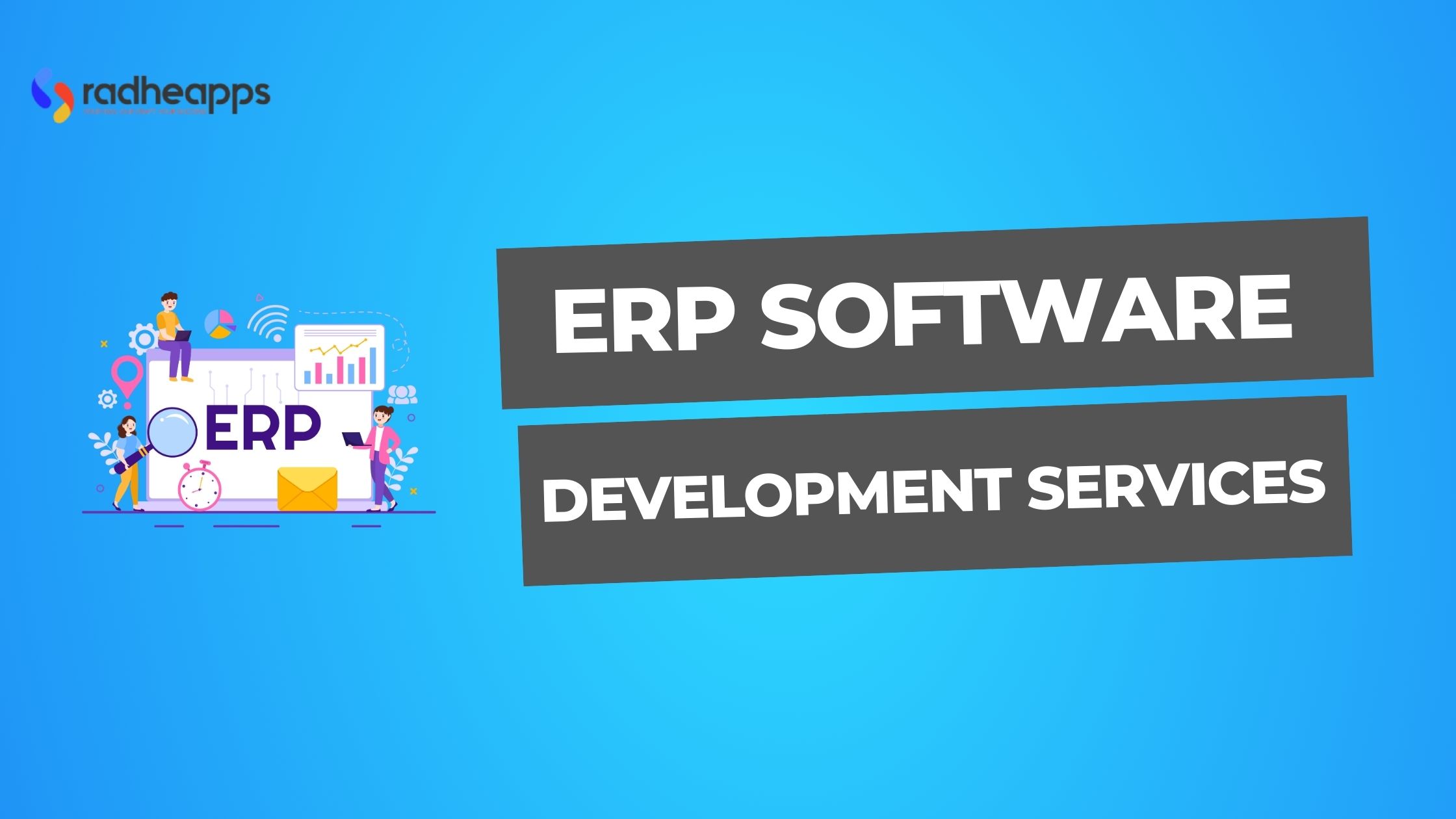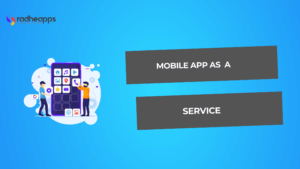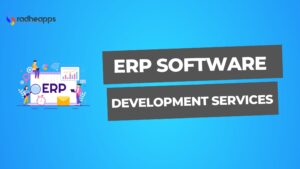Every company today wants to go digital. They’re racing to stay ahead and give their customers the best experience. And you know what plays a huge role here? Enterprise Resource Planning (ERP). It’s a game-changer.
But here’s the thing. To make it work, businesses need real pros in software development. Without them, it’s hard to keep up, let alone thrive.
At RadheApps, we specialize in creating customized ERP solutions that address critical business challenges and drive exceptional growth. Our team designs flexible, high-performance applications uniquely aligned with your goals and ensures your company can scale without limits.
Ready to take your business to the next level with powerful Enterprise Resource Planning?
Let’s connect and start building software that drives efficiency, growth, and success. Reach out to us at RadheApps today, and let’s create a future-proof ERP system that works for you!
That being said, in this blog, we’ll dive into why ERP is so critical for businesses. You’ll learn how the right software development team can make all the difference and why custom solutions stand out.
TL;DR- Steps to Implement ERP Software Development Services
In case you’re wondering about the steps involved in implementing an ERP Software, here’s the list :
- Outline the implementation’s scope
- Examine business needs.
- Data Migration.
- Test the system.
- Educate end users.
- Software deployment.
- Post-launch assistance.
What is ERP and How Does It Work?
Enterprise Resource Planning or ERP is a system that helps organizations keep track of their day-to-day operations. It handles things like supply chain management, financial tracking, purchasing, project oversight, and staying compliant with laws.
Picture a business like the human body. The body relies on various vital functions to stay healthy, right? Well, a business depends on key processes in the same way. Even though these processes seem to work on their own, they’re all connected. ERP keeps everything linked and running smoothly, just like the systems in a healthy body.
How do they work?
Enterprise Resource Planning (ERP) software consolidates the essential components of a business into a single platform. Its primary purpose is to integrate teams and streamline critical operations. With ERP, departments such as finance, inventory, accounting, and procurement collaborate rather than operate independently.
They utilize a unified system that features standardized fields and units, ensuring that information remains organized and consistent. This eliminates the need to manage data across various platforms, as ERP centralizes everything in one location.
Benefits of ERP Software Development Services
Although an ERP system’s basic idea is to consolidate all departments and their data onto a single platform, there are other advantages. Here are some of the most noteworthy benefits that an ERP system provides:
Enhanced Efficiency
There are numerous ways that an ERP system can significantly increase productivity and improve efficiency. One method is automating a lot of routine, fundamental chores, which frees up staff members to work on other projects that add greater value to the company.
Employees now can take on new responsibilities and concentrate on initiatives that make use of their actual abilities and knowledge.
Scalability
The best thing about top ERP systems is that you may employ the features you require right now and yet have the option to add more later. In that regard, the system can grow and change with your company.
Additionally, when your teams expand, you can add more users. If your business has evolved since you adopted the current ERP system, even in significant ways, there is no need to purchase a new one.
Mobility
Today’s ERP systems are mobile-friendly since employees are more accustomed to using smartphones and tablets rather than desktops to do a variety of functions. Users can view all dashboards, reports, and other information they require in a mobile browser because cloud systems are accessed via the Internet.
Live Reporting
An ERP system has the obvious advantage of providing reports. There are virtually no limits to the types of reports that can be produced for any function, including finance, inventory, procurement, sales and marketing, and human resources. Data that is current is crucial for your report, so make sure you use real-time data.
Security of Data
Since data is so important to making the best decisions, organizations now value having it, and ERP software can help safeguard that asset. Instead of being dispersed over several systems with different security levels, all of this data is in one location, which boosts protection.
By restricting who can access and modify data, an ERP system can improve data security. The majority of systems have easily controllable permissions, which guarantee that workers only view the data when required. This lessens the likelihood of fraud and other illicit activity.
Key Components of an ERP System
To get the most out of an ERP system, it’s key for a company to understand its core components.
Let’s dive into five essential ERP modules that help businesses by simplifying operations and delivering real-time insights. These modules work together to keep everything running smoothly and keep teams informed at every step.
Accounting and Financial Management
Accounting and financial management are typically regarded as the most crucial elements of an ERP system. This is so because they provide a single platform for overseeing all financial operations.
An ERP system simplifies complex financial tasks like revenue recognition, financial reporting, billing, and invoicing. By automating these processes, it cuts down on manual data entry, which means fewer mistakes. Plus, it frees up staff to focus on other priorities, like closing the books on time.
Human Resources (HR)
Management of a company’s workforce relies on effective human resources, often called human capital management (HCM). HR modules in an ERP track employee hours, paid leave, sick days, and other key details.
These modules also keep employee records and benefits info organized and secure in one place. This integration reduces the chance of errors or duplicate entries that come from juggling multiple spreadsheets or software systems.
Customer Relationship Management (CRM)
An ERP system’s CRM component gathers, arranges, and evaluates customer and prospect data, including contact information, sales history, and service logs, in a single, central location.
Customer care agents can better respond to service requests by using the CRM component to obtain each customer’s complete history. CRM modules also guarantee that the company responds quickly to consumer issues, which will once more enhance customer satisfaction and brand loyalty.
Supply Chain Management (SCM)
Supply chain management (SCM) covers everything from turning raw materials into finished goods to getting those goods to customers or partners. As products and materials move through the supply chain, an SCM module in an ERP keeps track of every step.
Inventory Management
Inventory management modules give decision-makers a more thorough look at indicators like cost of goods sold (COGS), inventory turnover rates, and shrinkage by combining financial data with data from suppliers, warehouse operations, and manufacturing processes.
Decisions regarding how to increase inventory efficiency to boost profitability can be informed by these insights.
How to Choose an ERP Software Development Company
The process of putting an ERP system to work involves many complicated steps. Selection of the right implementation partner can be tricky, particularly when it appears as if every option presented by your software vendor seems to look the same.
Here are a few of the key items to consider that will help in selecting an implementation partner who will make your deployment successful.
Project Management Approach
It’s vital to know the method used for managing the implementation. Similarly, the project management approach should flow seamlessly with the overall approach so that you know what to expect and when to anticipate developments. For the project to thrive it hinges on your trust in your partner’s swift answers and their skill in fixing issues in a manner that pleases everyone.
Skills and Experience
It is essential to gather comprehensive information regarding the consultants assigned to your project to evaluate their experience and expertise. Request their professional profiles, and if possible, arrange a meeting or conversation with them.
Methodology
In the context of ERP implementation, it is essential to comprehend the methodology employed by the partner. This methodology serves as the framework guiding the execution of your project.
An effective implementation methodology should clearly illustrate how the solution partner has leveraged their own experiences and insights to develop their approach.
Technical Development
In most cases, some level of customization is necessary to make your ERP solution fit your particular business needs. A vanilla solution will rarely meet your requirements.
Thus, it is highly recommended to engage an implementation partner who can provide the technical capability and competence to support other relevant systems, by building sound data integration solutions with other third-party service providers.
Trust and Understanding
The key factor to consider when choosing the right partner is trust. It is essential to ensure a strong alignment between your internal team and the partner selected for your new solution deployment.
ERP implementations are lengthy endeavors, and discovering mid-project that the partnership with your implementation partner is ineffective can lead to wasted time and resources, as well as significant frustration.
Training and Support
All ERP implementations necessitate post-Go-Live support. It is crucial to select a partner capable of addressing these requirements. Training should be an integral component of the implementation strategy (as it is in our methodology), although the extent of training required may differ.
Additionally, it may be essential to have access to supplementary resources to provide on-site support during the implementation phase.
Looking for a partner who checks all these boxes? At RadheApps, we specialize in custom ERP solutions designed to fit your unique needs. With a team that’s skilled, experienced, and dedicated to your success, we’re here to help you navigate every step of the process. Let’s build a solution that works for you!
Custom ERP Solutions for Businesses
An ERP system is made up of several digital business management components. It can use a collection of modules to provide you with a comprehensive picture of all the everyday activities that take place in the many divisions of your business.
However, given that every business has different objectives and requirements, it is reasonable to point out that there is no one best ERP system for all of them. This is where custom ERP solutions come into play. Customized ERP solutions provide several significant benefits for businesses.
Some of these are:
Increased Visibility :
Top management and staff have complete visibility into data thanks to custom ERP software. With the ERP solution, you can effectively track production, manage supply chains, and keep an eye on the ordering process.
Reduced Operating Expenses :
Employee effort can be saved and repetitive processes can be automated with a customized ERP system. It can lower operating expenses, boost employee productivity and efficiency, and provide your business model more flexibility.
Improved Productivity :
When it comes to daily duties, an ERP system helps your staff save time and effort. It can automate time-consuming manual tasks, which can help in freeing up your team members so that they can concentrate on their primary responsibilities. Their effectiveness thus rises dramatically.
Excellent Scalability :
Business-specific ERP solutions may make enterprises extremely scalable while guaranteeing data security and facilitating immediate sharing. As your business grows, ERP software can help you manage procedures effortlessly.
Whether you’re a large corporation or a dynamic startup, RadheApps creates personalized ERP solutions that align perfectly with your unique needs. Let’s innovate, scale, and thrive together. Reach out to us now!
Optimized Workflows :
Custom ERP software can simplify daily operations and improve departmental communication. With the ERP solution, you can monitor the workflow and be confident that even distant workers are working effectively.
ERP Deployment Process – Steps for a Successful Implementation
The project team must be mobilized in the initial stage of implementing an ERP. End users, different business process owners, and an executive sponsor are usually on the customer side.
There will be a project manager, technical consultants, and business analysts on the ERP partner side (sometimes known as the “technology provider”).
Communication of the status of system installation, solving the problems promptly and efficiently, and accomplishing the stated goals all depend on project management.
Now that the team is prepared, it’s time to outline the ERP deployment procedure, which typically entails:
Define Scope and Milestones
Outline the implementation’s scope, create process maps, identify necessary adaptations, set project milestones, and define expected outcomes to establish a clear project framework.
Assess Needs and Set Up Sandbox
Examine the business needs and set up the system in a sandbox environment. Configure this environment to simulate the required workflow.
Configure System Workflow
Align the system configuration to meet specific workflow requirements, ensuring it matches the anticipated business processes.
Verify and Map Data
Carry out verification checks, then map and transfer data into the new system to prepare for testing and full functionality.
Test Across Departments
Ensure all departments test the system to validate that it meets their needs and integrates smoothly with other workflows.
Test Quote-to-Cash
Continuously test the quote-to-cash cycle to identify and resolve any issues that may impact financial and operational functions.
Train Users by Role
Provide end-user training tailored to their responsibilities and permissions, helping them understand the system about their role.
“Train the Trainer”
Adopt a “train the trainer” approach, where select users receive advanced training and then act as internal trainers for their teams.
Go-Live Deployment
Deploy the system into the production environment in the “go-live” phase, marking the official start of full system use.
Staff for Transition
Ensure additional staff support during the transition to monitor and address any issues, facilitating a smooth handover.
Post-Launch Support
Provide ongoing support post-launch, and evaluate the project to identify successes, improvements, and future needs.
Careful planning and thorough testing are the two primary components of an ERP system installation that will guarantee the system transitions from concept to the live environment.
Conclusion
ERP software development services may completely transform your company’s operations in a digitally-first corporate environment. ERP is an investment that promotes long-term success and efficiency, from improving productivity and data visibility to guaranteeing regulatory compliance and scalability.
Partner with RadheApps for expert ERP software development that enhances productivity ensures data visibility, and drives scalability. Our custom-built solutions are designed to meet the unique needs of your enterprise, delivering long-term success and efficiency.
Ready to take your business to the next level? Contact us now to start your ERP journey!
Frequently Asked Questions (FAQs)
How Does SAP ERP Software Differ from Other ERP Systems?
SAP ERP is distinguished by its broad range of adaptable modules that are ideal for big businesses. Higher scalability, advanced analytics, and industry-specific solutions distinguish it from more straightforward ERP systems that are frequently employed by smaller companies with less complicated requirements.
What to Look for in an ERP Software Development Company?
Prioritize industry-specific experience, ERP system expertise, and demonstrated custom development abilities when choosing an ERP software development company. Seek out a business that provides robust post-deployment assistance, scalable solutions, and smooth integration with current tools. Make sure they give user-friendly design, compliance, and data security first priority.




